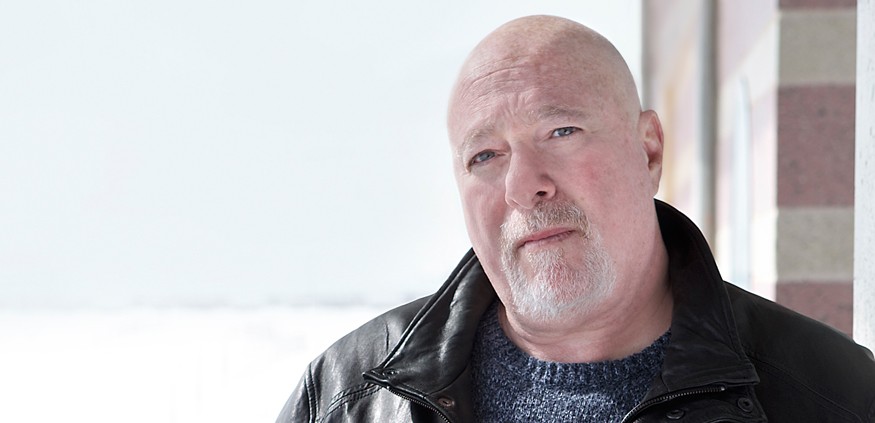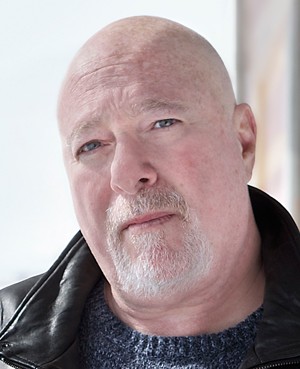
A poet and a crime author, Reed Farrel Coleman has written more than 15 novels, including the critically-accalimed Moe Prager series about an ex-cop turned private eye. He has collaborated with Ken Bruen, continued Robert B Parker’s Jesse Stone series, and has won a slew of awards along the way. In his latest novel, Where it Hurts, he introduces a new character in the form of Gus Murphy, a retired policeman living in a world of grief. We asked the New York author to join us and talk more about his work…
What can you tell us about yourself?
I’m Brooklyn, NY born and bred. Grew up in the Coney Island/Brighton Beach section. I’m the youngest of three sons and I have a great Irish name, though I’m of Ukrainian/Jewish heritage. I attended a high school that has an amazing track record of producing writers and musicians: Mel Brooks, Arthur Miller, Joseph Heller, Harvey Keitel, Neil Sedaka et al. I began writing poetry at 13 and pursued it all through high school. In fact, I gave up playing football to devote more time to it and by the time I graduated I was the editor of the school literary magazine. At Brooklyn College I carried enough credits to major in psychology, philosophy, and English lit. I never had it in me to actually graduate. I studied poetry there with David Lehman and during my time at BC, Allen Ginsberg, John Ashbury, and Edward Albee all passed through the English department. Not too shabby. After school I went into the freight forwarding business, starting at the World Trade Center before being transferred to JFK airport. If you’ve seen the movie Goodfellas, those were the kind of guys I worked with at Kennedy. I took a night class in American detective fiction back at Brooklyn College and within three weeks I knew what I had been born to do. I quit my regular job and haven’t looked back. I’ve been married for 32 years and have two grown children.
Can you tell us a bit more about Where it Hurts, the novel that introduces Gus Murphy?
The book is both an involved crime story and a meditation on grief and loss. Gus is a retired Suffolk County uniformed policeman. He thinks he understands how the world works. He doesn’t want for much or covet what other people have because he has everything he wants: a great marriage, two nearly grown children, a nice suburban house, a good pension and time to enjoy it all. Then it all goes down the sewer when his son John dies playing basketball. His world and marriage are blown apart. The book begins two years after his son’s death and Gus is still lost. In order to occupy himself, he works as a courtesy van driver for a run down hotel by a local airport. His life begins to turn when an ex-con shows up at the hotel and asks for Gus’ help in finding his own son’s murderer because the local police don’t seem the least bit interested. Reluctantly, Gus agrees and what he finds is a web of corruption, drug gangs, and violence. He also finally finds a way ahead for himself.
Many of your books explore themes of family responsibility, grief, and the corrosive nature of guilty secrets. Where does your interest in these themes come from?
It’s a secret. Seriously, it comes from the belief that we really can’t know anyone else because it’s nearly impossible to know ourselves. I think we start lying almost as soon as we start talking as a reflexive, protective behavior and I’m fascinated by it. But what, in the end, I find most interesting is the equally corrosive nature of the truth.
Moe Prager and Gus Murphy are both middle-aged men with blue collar backgrounds who face antagonists who often have a social advantage over them. Did you write these characters because of a particular empathy towards them?
I’m not particularly interested in rich people. I’m interested in struggle, real life struggles. Although I have a great job, I grew up, if not poor, then pretty close to poor. Five of us lived in a four-and-a-half room rented apartment. I lived in the same room as my two brothers. My dad worked in supermarkets. My mom was a secretary. My wife grew up in a single parent household near Detroit. I drove a truck, worked as a waiter, sold cars. It’s people who do these things, who live in constant want that interest me.
How was your experience of stepping into the late Robert B Parker’s shoes to write the Jesse stone novels Blind Spot and The Devil Wins?
I view my role in writing Bob Parker’s Jesse Stone novels as being handed the keys to a successful business that delivers a product people love, but I don’t feel obliged to only sell exactly the same things that the store used to sell. I try to honour Bob’s mastery and the characters he created without doing imitation or pastiche. I hope that I’ve been successful at achieving what the estate, the publisher, and I hope for. I really don’t view it as a kind of co-authorship arrangement. I do love the challenge of working with other authors and collaborating though. I think working with Ken Bruen taught me some valuable lessons that I carry with me always.
Reed Farrel Coleman’s Where it Hurts comes out 26 January. Watch for our review.
